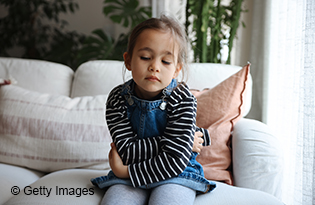Worried your child might have a food allergy?
3/14/2024 by Tiffany Ngo, M.D.

Food allergies might not be a concern for some families, but they are more widespread than most people think. Thirty-three million people in the U.S. have reported food allergies. In children, 1 in 13 are found to have a food allergy.
An allergy can be life-altering for some families, especially since there is a risk for anaphylaxis after ingestion of an allergenic food. Anaphylaxis is a full-body reaction after ingesting certain foods. It can cause a person to experience hives, lip or tongue swelling, difficulty breathing, nausea, vomiting and abdominal pain. A person who is undergoing anaphylaxis can experience any combination of these symptoms.
As a parent, you may be afraid to introduce foods to your baby. The introduction of pureed foods typically starts at around 4-6 months of age. Learn what to watch for as you introduce new foods.
Signs your child may be having an allergic reaction to a food
If a child is having an allergic reaction to food, they can be at risk for anaphylaxis. Symptoms of potential anaphylaxis include:
- Nausea.
- Vomiting.
- Abdominal pain.
- Diarrhea.
- Shortness of breath
- Lip and tongue swelling.
- Hives.
Anaphylaxis often occurs within minutes. People who develop anaphylaxis will have two-organ system involvement. People experiencing anaphylaxis must have gastrointestinal symptoms and respiratory symptoms or skin involvement.
If you are introducing a new food and your child experiences any of these symptoms within minutes, bring them to the closest emergency department to be evaluated.
Are there foods to avoid in case my child has a food allergy?
These foods are most commonly found to cause food allergies:
- Milk.
- Egg.
- Fish.
- Shellfish.
- Tree nuts.
- Peanuts.
- Wheat.
- Soy.
- Sesame
That doesn’t mean you need to avoid them. Even though these foods are the most common foods that people have allergies to, children should not start with a restrictive diet for fear of a food allergy.
The Learning Early About Peanut Allergy (LEAP) study done in 2015 concluded that early exposure to peanuts in infants at high risk of peanut allergy decreased the risk of subsequently developing a peanut allergy.
How can I prevent my child from developing a food allergy?
Don't restrict foods that have not previously caused a reaction in your child. Restricting foods might cause the body’s immune system to develop an allergy to foods instead.
For more information about food allergies, visit the Food Allergy Research & Education website.
Tiffany Ngo, M.D., is a resident in Community Pediatric and Adolescent Medicine in Rochester, Minn. Her interests include allergies, asthma, eczema and immunodeficiencies.
